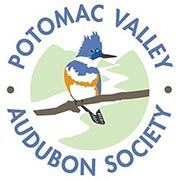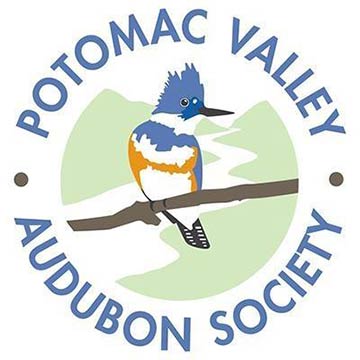As a school partner, Potomac Valley Audubon Society created educational resources for teachers and parents to use. These educational videos discuss nature topics and show students how they can explore nature in their own backyard here in the Panhandle. Some videos include crafts or activities as well as supplemental worksheets. Enjoy these videos and please share with teachers, students and parents.
Bring your students to one of our four nature preserves or have PVAS bring a program to your classroom! Lessons are hands-on, linked to WVCSO’s, and great fun for your students. PVAS offers grade-specific programs for classrooms from pre-K-5th grade. We also offer custom programs upon request for any grade. School class fees for Title 1 Schools are often covered by community scholarships. Insects, Plants v. Animals, Animal Adaptations…check out the complete list of programs broken down by grade level, and e-mail our Education Team at YouthPrograms@potomacaudubon.org.
The first step to using your schoolyard to support your already existing lesson plans is to go outside and look! This guide will help you help your students to connect with nature. If you are looking for a good field guide for your students, National Audubon Society has a list that can help. If you want to find out to teach birding identification skills to students, this website from Cornell Labs can help/
Thanks to support from the Nora Roberts Foundation, there are Nature Explore backpacks at all of the local libraries in the Eastern Panhandle, at some libraries nearby in Maryland, and at the nature center at Cacapon State Park. They are available for checkout with your library card!
Each pack contains a variety of books, field guides, supplies and activity ideas centered on different themes. Backpacks themes include Birds, Reptiles and Amphibians, Backyard Habitats, Mammals, Insects, and Winter.
StoryWalks are a great way to encourage your students to combine literacy, the outdoors, and health! Books are posted page-by-page on signs so that students can walk and read. We’ll set up a book around your school on a day you choose and you encourage classes to go out and enjoy reading in a new way. An array of seasonal StoryWalks can be found on our StoryWalk site.
Contact volunteer Susannah Olsen jstnr.olsen@gmail.com to make arrangements.
- Audubon Adventures is a great website with ideas for using nature in your classroom!
- these book suggestions from Richard Louv, founder of the Children and Nature Network.
- The Wisconsin Society for Ornithology has some great video resources on birds, bird habitats, and more. It’s all on BirdTV!
- The Smithsonian Science Education Center has a new E-book on bugs called Expedition Insects! It’s available for download, here.
- Cacapon Institute’s Watershed e-School:Great flash videos about macroinvertebrates, “What’s a Watershed”, and impacts of runoff. It has resources appropriate for Elementary through High School.
- The West Virginia Environmental Education Association (WVEEA) has some great people resources to share with your classroom.
- NatureWorks Everywhere is a series of interactive lesson plans by The Nature Conservancy.
- NAAEE North American Association for Environmental Education
- Outdoor Biological Instructional Strategies contains teacher training materials and curriculum.
- Virtual frog dissection!
- The Discovery Channel has an extensive site with lesson plans for teachers on a variety of natural history subjects.
- EPA-Teacher Resources Extensive teacher resources on everything from climate change, to water, to ecosystems including a
- WV Division of Natural Resources has some excellent background information on WV Wildlife, as well as some kids activities in the KidZone.
- WV Division of Environmental Protection The site provides access to water curricula and programs including access Project WET, Save Our Streams, and their Stream Partners Program.
- Project Learning Tree is an excellent curriculum about trees.
- Smithsonian Quests inspire students to explore their own ideas and interests online, in school, at home, and across the nation. The quests connect and reward learners of different ages and in different regions as they learn through discovery and collaboration. Rewards include digital badges that students (and teachers) take with them for life!
- Animal Fact Sheets for students. (Also in Spanish.)
PVAS occasionally receives grants to lead training sessions for local teachers. We can also design a custom program for your team to help increase teachers’ comfort level with teaching outside, using the schoolyard as a classroom, teaching science topics, or integrating environmental education across subject areas. Our staff and volunteers are also certified to lead Growing Up Wild, Project Wild, Project Wild Aquatic, and Flying Wild training sessions. Email our Youth Education Team at YouthPrograms@potomacaudubon.org for more information.
These two kits, one on birds and one on insects, supply teachers with a classroom set of everything needed to teach about insects or birds. Field guides, children’s stories, activity ideas, binoculars, bug boxes, insect nets, posters, and more can be found in the kits, depending on the theme.
Teachers can check out Nature Explorer Classroom Kits from the Shepherdstown Public Library and are available throughout the state through interlibrary loan. Most activities are for geared for grades K-5, but can be adapted for all ages. Scout leaders are welcome to check these out as well.
Webcams are a great way for students to watch animals in the wild. Many of the bird cams are on nesting sites that are most active in the late winter and early spring. Some cameras are active only at certain times of the year.
You’ll find links to several bird webcams here from Cornell Lab.
The Eagle Cam at NCTC in Shepherdstown is here.
The National Zoo in Washington, DC has several Animal Cams here.
The San Diego Zoo has Animal Cams here.
The Bear Cam in Ely MN here.

